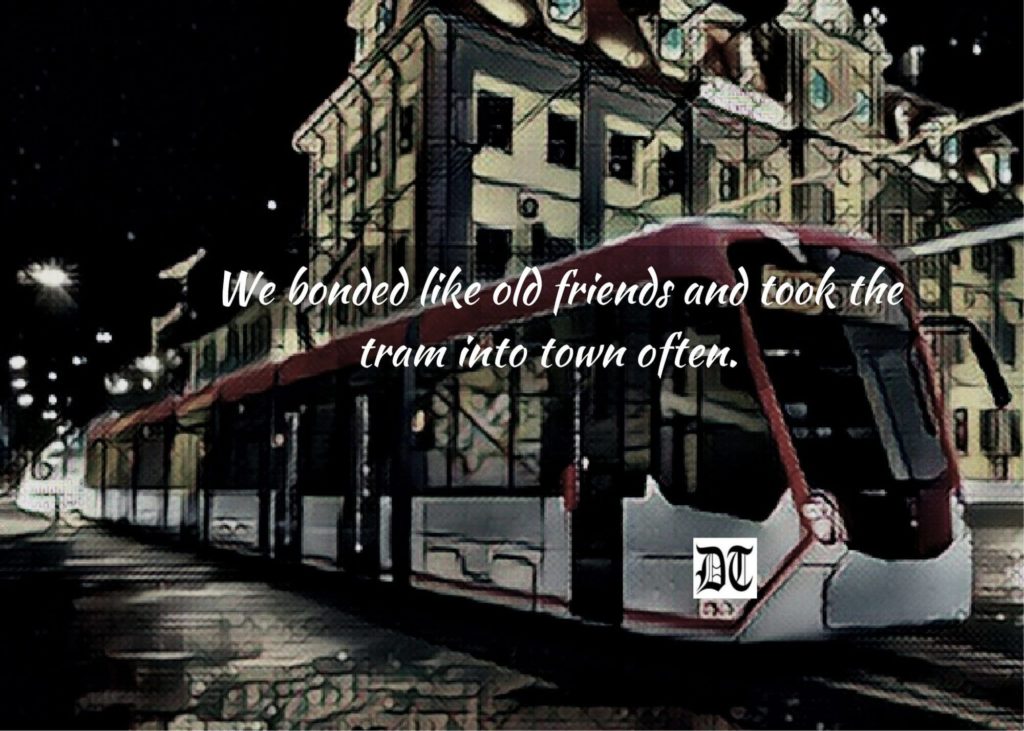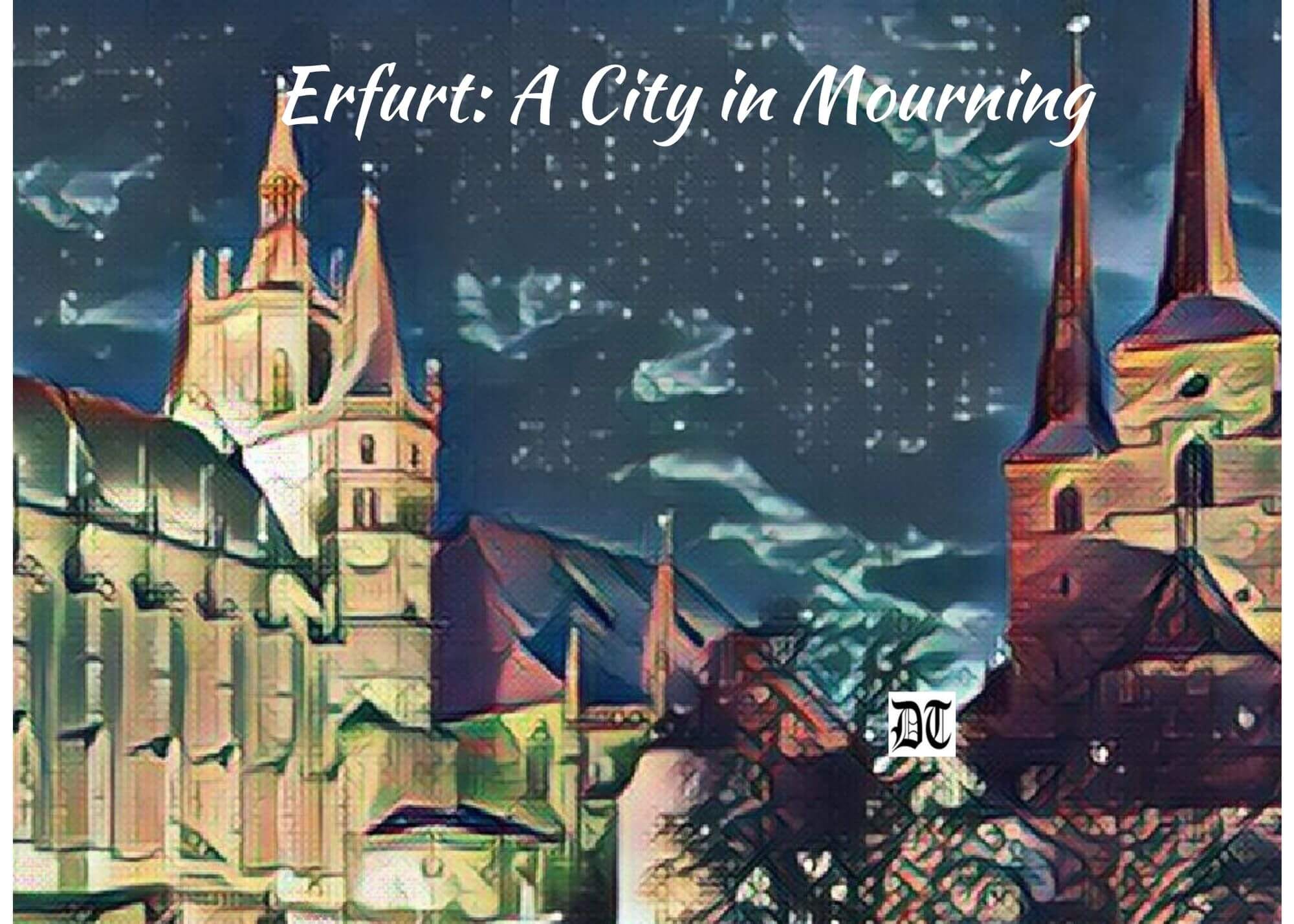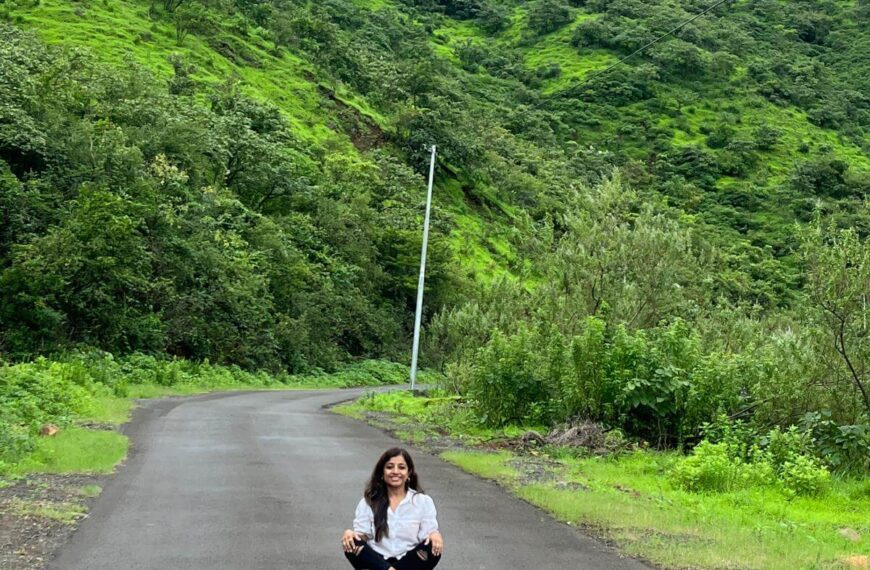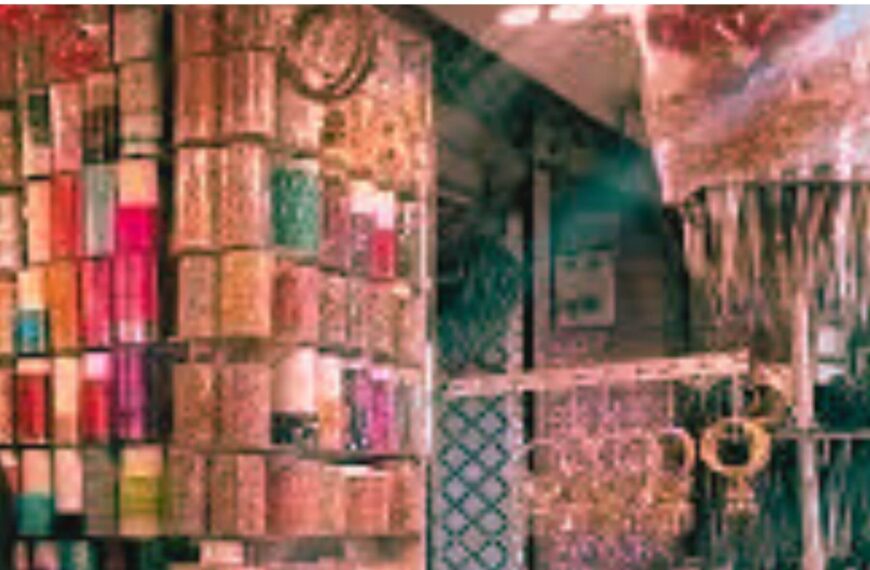In a recent Texas shootout, an 18-year-old student massacred 19 children. It brought back memories of a similar shootout in Erfurt, Germany, in 2002. Dr. Roopali recalls her trip to that city, exclusively for Different Truths.

The year was 2002 and the month was April. The English Literature conference would be held later that month in Erfurt, Germany. I was ready. I would be presenting on Arundhati Roy’s Booker Prize-winning novel, The God of Small Things.
It would also be the best time to roam about Europe. These days, the cyber highway has made people and places accessible. Real travel is fraught with anxiety.
I was travelling to an unknown destination and kept sending anxious emails to the organisers. Of Erfurt I knew very little and 20 years ago, email was all I could handle.
It reported a horrible school shootout at a prominent high school there.
A few days before I was to depart, a strange thing happened! Erfurt appeared in a small column on the third page of The Times of India. It reported a horrible school shootout at a prominent high school there.
A student expelled for failing his exams had returned with a gun killing 13 teachers and injuring many more. In Erfurt. Of all places. America’s gun culture influence was seeping into Europe.
The conference was not cancelled. I was disappointed. I boarded the Lufthansa flight to Frankfurt. From there I was to travel to Erfurt by train. The departing train station was located inside Frankfurt airport.
I left my luggage in the locker room. It was a big hall full of suitcases.
I left my luggage in the locker room. It was a big hall full of suitcases. I paid a small fee to hold it there for three days. I would collect it on my way out and head off to see my kid in Washington, D.C.
Frankfurt is an extensive airport. A miniature city. It is an air junction for flights from all over the world. Giant sized electronic flight information boards roll out incoming and outgoing flights, arrivals, and departures. Quite intimidating with its ghost trains and hurrying passengers.
I was familiar with the airport. Having spent hours catching connecting flights. I even had a favourite corner seat. Six-hour layovers in Frankfurt between Delhi and the United States had made it my home in transit.
Catching a train was a new experience.
Catching a train was a new experience. Dragging my small cabin baggage, I waited at a platform from where I boarded the train to Erfurt. Flower booths, coffee shops and McDonald’s burgers were beckoning. I couldn’t afford to go on an eating spree. I had to hold on to my money.
After some time, the train left the bustling city behind and entered the rural landscape. We passed acres and acres of undulating eye-filling yellowing mustard fields. The ripening mustard fields of Punjab crossed my mind.
These were to produce rapeseed oil to be used in running machinery and other vehicles. A passenger volunteered information. In India the government sold packaged Rapeseed oil at Mother Dairy booths. To be used for cooking!
A couple of hours later the train arrived at a tiny station called Erfurt. It was part of the erstwhile East Germany.
A couple of hours later the train arrived at a tiny station called Erfurt. It was part of the erstwhile East Germany. I was a bundle of nerves. The Professor organiser had asked me to call him as soon as I arrived.
A phone booth with a weird contraption which could be a telephone stared back at me. I panicked. A hefty, heavily made-up lady in uniform walked up to me. She asked me in German if she could help me. I took out the paper with the phone number pointing to it. She refused the Euro change I offered her and dialed the Professor. He requested her to ask me to wait.
He was over in a jiffy. We chatted like old friends, and he helped me with my baggage as we hopped onto a tram.
The city of Erfurt was quaint and fairy tale-like.
The city of Erfurt was quaint and fairy tale-like. Time has stood still here. The river Gera flows underground, sometimes surfacing. The Professor explained how Erfurt was an important centre for agriculture and gardening.
Also known as the “many-towered city.” Its claim to fame was Martin Luther whose vision sparked the Reformation. Founded in 1120, it is the biggest city in the state of Thuringia. Max Weber, J.S. Bach, and a host of intellectuals, musicians and sports persons were born and had lived in Erfurt.

I was allotted a room in a stern looking building. The gentle Professor kindly handed me some pre-paid bus passes. At lunch, I met up with an Indian scholar from Mumbai University. But it was my meeting with a renowned poet and professor Susan Kiguli from Makerere University in Uganda that made my stay at Erfurt warm and cherishing and fun. We bonded like old friends and took the tram into town often.
We found the city of Erfurt completely submerged in grief. Its people were in mourning.
We found the city of Erfurt completely submerged in grief. Its people were in mourning. A 19-year-old student expelled from school had shot dead 17 people, including 13 teachers and a policeman. I had read about it in Delhi. Here it was real. I had travelled thousands of miles only to witness a city weeping.
In Germany’s postwar history this was the worst mass murder.
In Germany’s postwar history this was the worst mass murder. Everywhere flowers and messages lay in heaps. The old church in the city square with Christ on the Cross was filled with flowers. candles and notes for the dead. They lay heaped at his compassionate feet.
The mourning was palpable. Everything and everybody were acutely aware of the shocking tragedy. Yet they went about quietly and solemnly. Nobody spoke of the incident. It had stunned both young and old.
Flags flew at half-mast. Susan and I walked the night on candle lit sad streets. Cobbled streets where once intellectuals had walked, and Nazi soldiers had stomped. That night I sat alone in the stark lonely guest house in faraway Erfurt with its beautiful spires and steeples. I tried hard to understand the angst of the young boy who was stunned by his bleak future. He had killed himself. His body was buried ignominiously in the dark. No one grieved for him.
What, I wondered, had pushed the young man to kill his teachers?
What, I wondered, had pushed the young man to kill his teachers? Why was he expelled and denied access to learning? He was a deeply troubled soul. Filled with rage and a sense of injustice. I was a teacher. So were most of the delegates to the conference. They had converged here from Germany, South Africa, Malaysia, England, Uganda, India, Indonesia and the United Kingdom.
Erfurt was unimaginably beautiful. The river flowed through the picturesque fairy tale-like city which stood still in time.
A poem spilled straight out of my heart. The next day, the conference concluded with a poetry meet. It was attended by the mayor and townspeople. The hall was full. I asked to read my poem. As I concluded I could see so many break down and weep openly. So many others walked up and embraced me. Their eyes filled with tears.
I had travelled many miles from home to a city so different from mine.
I had travelled many miles from home to a city so different from mine. Here in Erfurt, I found humanity and learnt that the human heart beats the same everywhere.
Oh, Erfurt!
Lonely stalker, what silence stalked the footsteps of your failure? Those fingers whose softness once curled inside mother’s womb, soft as the grief-stricken flowers which lie scattered at the nailed feet of an agonised Christ! When did those fingers grow iron fists of hate and anger? who helped them grow in the dark caverns of a mind no one dared to touch. The wise denied their wisdom, turning your head away from the Magi’s path. They let you wander in the zig zag contours of a maze of terror. Those hands were not as soft as yours They were calloused and stained in cyanide. Those hands steeled yours with insanity, filling your outstretched palms with gunpowder. They taught you about death and nothing about life. Oh Erfurt! Faraway in my land I have heard your heartbeat. The blood that was spilt was mine too. Your flowers will bloom again, and the cobbled streets which wind their way up the stairs? where teardrops glisten in the flickering candlelight, will fill with laughter again.
Picture design by Anumita Roy, Different Truths






 By
By


Loved it Roopali, both the article and the poem. How very tragic that the young resort to this type of revenge to get back at those that caused them pain.
Jeanette
What a touching poem in response to the incident, the picturesque image turned out to be thought-provoking. Yes, dark days never to be repeated,yet days and times would not remain as they are